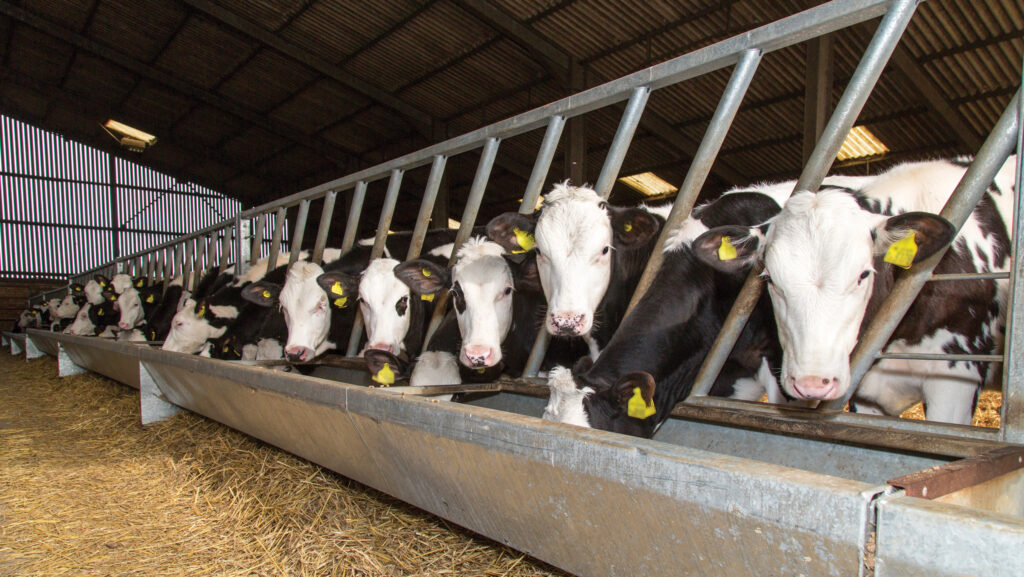Business Clinic: Renting a shed to neighbour for youngstock
 © GNP
© GNP Whether it’s a legal, tax, insurance, management or land issue, Farmers Weekly’s Business Clinic experts can help.
Here, Nick Curnock, associate partner, Carter Jonas, advises on a neighbour agreement for winter cattle housing.
See also: Business Clinic: what planning paperwork is needed for greenfield dairy unit?
Q: A close dairy farming neighbour wants to rent one of our cattle sheds to house about 100 youngstock over the winter, from the start of November to the end of February or March.
The shed has plenty of space, it has water, electricity and good handling facilities.
We have no stock on the farm now so biosecurity is not the issue that it might otherwise be.
We would supply straw, the neighbour would order or bring feed in, he and his staff would do all the feeding, checking and any other husbandry.
What should I charge, how should we document this agreement and what are the insurance considerations?
A: In terms of charging this could range from about £1-£2 per head per week to £50 per head for the whole winter period.
Or you could charge a lump sum in advance.
There are deals to be done and exact terms to be decided. You will be supplying the straw, but is it a muck for straw deal?
Are you getting paid for this at the end of the agreement? There are also utility charges to consider – are they being factored into the lump sum headage payment, or are they being charged separately?
The decision really comes down to your personal preference.
Typically, you may lean towards the higher overall lump sum, but the incoming person will probably prefer the lower headage payment, depending on their cashflow and what else they’re paying for.
You will also need to consider frequency of charging.
Put terms in writing
In terms of documentation, you need to set out more detail about the exact terms of the arrangement.
Things you will need to stipulate include whether or not you are letting the building and granting exclusive possession to the incoming person.
If you’re not planning on retaining any responsibility, a farm business tenancy (FBT) may be most appropriate.
Or you could use a licence, just to cover the period stipulated.
It would only need to cover a short period from about 1 November to 31 March, so the FBT would be broadly the same as the licence and they would both have short term notice provisions to end the agreement.
There are pros and cons to each type of agreement. With an FBT you could offload maintenance responsibilities to the tenant, whereas with a licence you retain the management control of the building.
You’d also still have responsibility, but you could include things in the licence, for instance that the building has to be maintained to the standard it was in at the start.
In either agreement, it would be recommended to include a record of condition from the start.
Responsibilities of each party
Within both agreements, you would need to set out the responsibilities for both parties; for instance, that you will be supplying the straw and the incoming person will supply the feed.
Within that documentation, you would also need to talk about access within the farmyard – how the incoming person and any employees will access the site, where they will be storing their feed if not carting in on the day, and so on.
It is important to stipulate these details, particularly in a scenario such as this because you don’t want to be falling out with your neighbours.
Getting as much clarity as possible in advance is wise, especially if employees will be involved who you may not have a personal relationship with.
Tell your insurer
You will need to inform your insurer because of the change of occupation so that they’re aware that a third party will be occupying the space.
Outside of the building insurance, you will want to be seeing their public liability and employers’ liability insurance if their employees will be on site. It’s also good practice for them to sign up to your farm’s health and safety policy.
It’s important to consider what kind of relationship you want to have with your neighbour moving forwards. In the past, this kind of arrangement may have been settled in person with a handshake.
However, it may be best to use the services of a third party so that if any issues arise, you can complain to the agent who will act on your behalf, rather than having to deal with your neighbour directly.
Do you have a question for the panel? Outline your legal, tax, finance, insurance or farm management question in no more than 350 words and Farmers Weekly will put it to a member of the panel. Please give as much information as possible. Email your question to FW-Businessclinic@markallengroup.com using the subject line “Business Clinic”.
